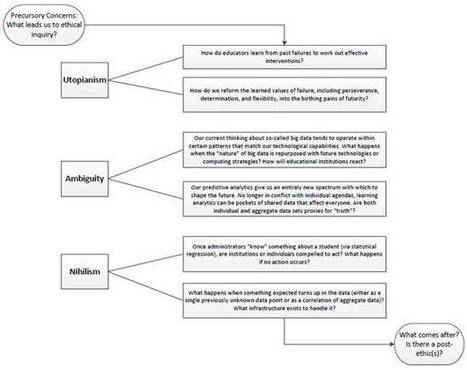"Learning analytics stand poised to benefit students in previously impossible ways. Alongside innovation, however, ethical discussions need probing questions, assessments of possible outcomes, and active disagreement about future developments. Ethical modeling will not achieve these, at least not in a substantive way; principled reflection needs to keep up with the speed of innovation as closely as possible. An inner matrix of tensions will achieve ethical reflection aligned with innovation — or at least get us closer to that goal. When schools or companies build new learning analytics systems, or when schools are deciding between competing products, ethical discussions ought to be in the forefront of outcomes-based commitments. The proposed tensions of utopianism (what is the very best outcome?), ambiguity (are the outcomes knowable?), and nihilism (how are unexpected outcomes handled?) can help institutions and companies fulfill the goal of assisting student success."
Via
Society for College and University Planning (SCUP)



 Your new post is loading...
Your new post is loading...


















